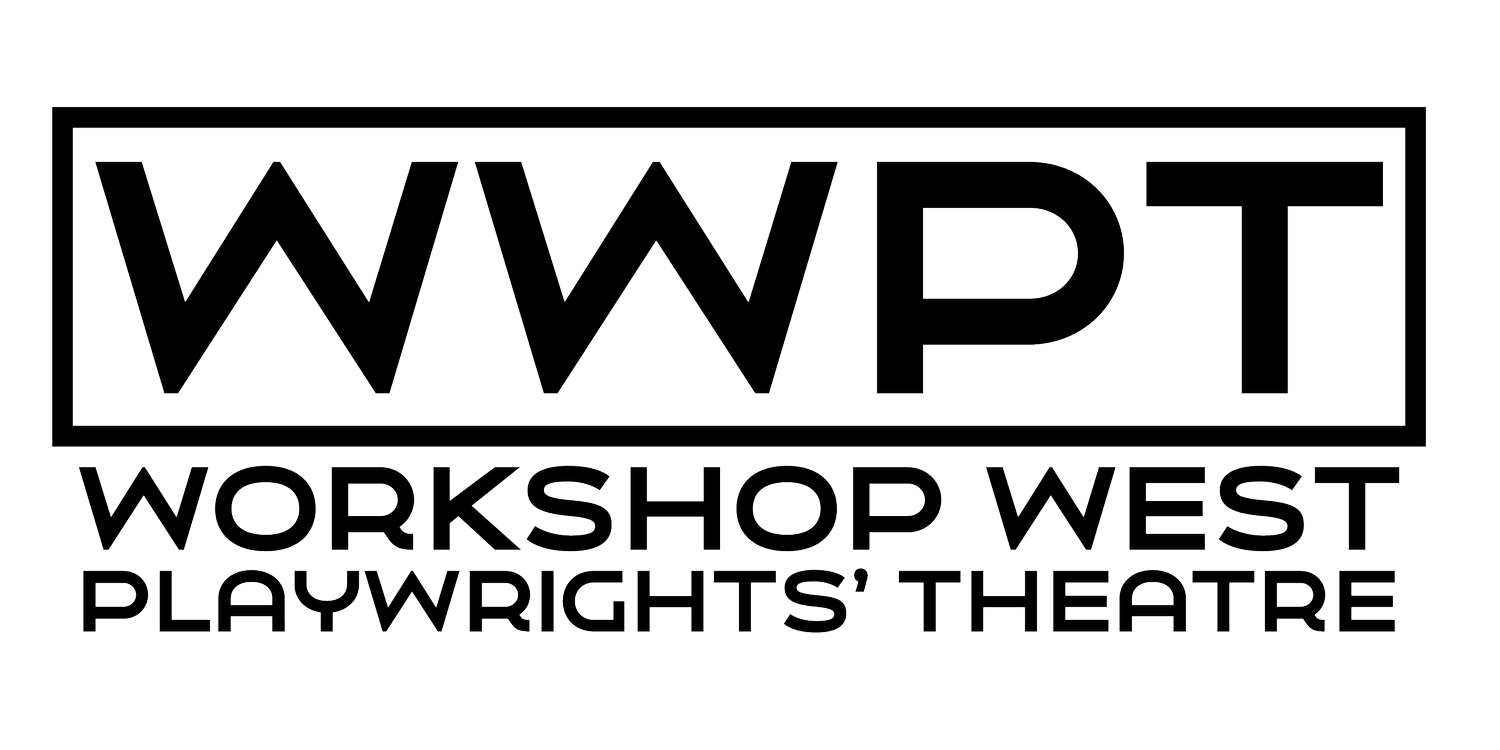Finding Good People
A Conversation with David Mann, Artistic Director 1994-1999
By Jonah Dunch
When David Mann unexpectedly became Workshop West’s second-ever artistic director, he was fulfilling a lifelong dream of running his own theatre company.
“I was really interested in the… burgeoning of Canadian theatre, which was not something that most theatre companies did,” Mann says. “[Being Workshop West’s artistic director] was probably one of the formative experiences of my career in theatre.”
Mann was first hired as interim artistic director for a year, while founding artistic director Gerry Potter was on sabbatical. But Potter chose to move on from Workshop West, and Mann was found himself stepping in as Potter’s fulltime replacement.
“I was more ready than I thought it was, to take on more of a directing role,” Mann says.
Mann had spent the last several years working as an actor and, later, a director around Edmonton. In those early days, he was drawn to Workshop West’s mandate of developing new Canadian work, and had an interest in Potter’s idea of developing a repertory company inspired by the European model. Potter brought a group of actors together for two new works, Sliding for Home and The Rich Man, and Mann jumped into the fray.
“I was really keen on… the way companies can become more than just a group of people who gather together for a few weeks to do one show and then scatter to the four winds,” Mann says. “It becomes a much more collaborative process.”
Transitioning from acting to directing was a natural step for Mann, as he loved being involved with every part of the theatre-making process, from design to playwriting.
“As an actor, I had always approached the work with a bit of a director’s brain,” Mann says. “I was generally more concerned with, ‘Does the scene work’… as opposed to ‘Do I look good?’ For me, it was all about the teamwork.”
Mann put that director’s brain to good use in his six years at the helm of Workshop West. He had big shoes to fill in the wake of Potter’s departure, and he learned a lot during his tenure.
“I inevitably made mistakes,” Mann says. “And I was a much better artistic director, and director, at the end of those six years than at the start.”
Mann inherited a deficit (as is par for the course for mid-sized theatre), which Workshop West retired over three years. The company had been hit by long-term freezes in arts funding during the ‘90s recession, reducing its capacity from the boom of the late ‘70s and ‘80s. But Mann found the silver linings: to keep down costs, Workshop West shared an office and rehearsal space with Northern Light Theatre, which became a hub for the local theatre community. (Northern Light has moved out, but Workshop West still occupies this building.)
“We were all able to share, and collaborate, and know about each other’s work, in ways that don’t always happen when everybody’s off in their own corner of the city doing their thing on their own,” Mann says. “We would sometimes even end up working on something together!”
Indeed, they did. Under Mann, Workshop West co-produced several productions with other alternative theatre companies, like Theatre Network. Mann particularly remembers their co-production of an adaptation of The Stone Angel, as well as their co-presentation in repertory of two of the plays in George F. Walker’s Suburban Motel cycle.
“A lot of these companies have survived as long as they have in spite of the vicissitudes of funding,” Mann says. “I would love to see them be able to get the funding and the wherewithal to [tour their shows or] do second or third productions of plays they premiere.”
Staying true to Potter’s focus on new play development, Mann expanded the Springboards New Play Festival, which presented works in progress. Like the string of co-productions, this was a fiscally wise decision. But it had artistic merit as well, drawing in large crowds and supporting playwrights on projects in their infancy.
“It helped to give playwrights an opportunity to develop their work,” Mann says. “Some of those people have gone on with productions of their plays.”
Springboards also gave Mann a chance to work with roughly 30 actors at once, instead of having to pick two for a full production. Being an actor-turned-director, this was a highlight for Mann.
“I really liked finding good people and giving them work, and then working with them and watching them succeed,” Mann says. “I didn’t have to be up there doing it myself. I really enjoyed helping them to do their best work, and to collaborate with them to get there.”
After leaving Workshop West in 1999, Mann worked as the artistic director at Theatre One for about four years, and then (with one year overlapping) worked as artistic director at Kelowna’s Sunshine Theatre for another four years. For the last 10 and a half years, he has worked as the performing arts manager at Evergreen Cultural Centre in Coquitlam. Five years ago, he also started working part-time as Theatre One’s artistic director again. Mann says he has carried his experience at Workshop West with him throughout his career.
“You learn from all these things. You learn from the shows that didn’t turn out as well as you hoped they would,” Mann says. “And you learn from the ones that surprise you, and turn out better than you thought they would.”
Mann thinks Workshop West has always maintained its commitment to developing and producing new plays, and that this backbone is something everybody can hold onto in the ups and downs of doing theatre.
“If you go to Workshop West, you’re likely to see a show that’s about the Canadian reality,” Mann says. “If you want to see something new and also be part of something new, that’s what the company’s all about.”


